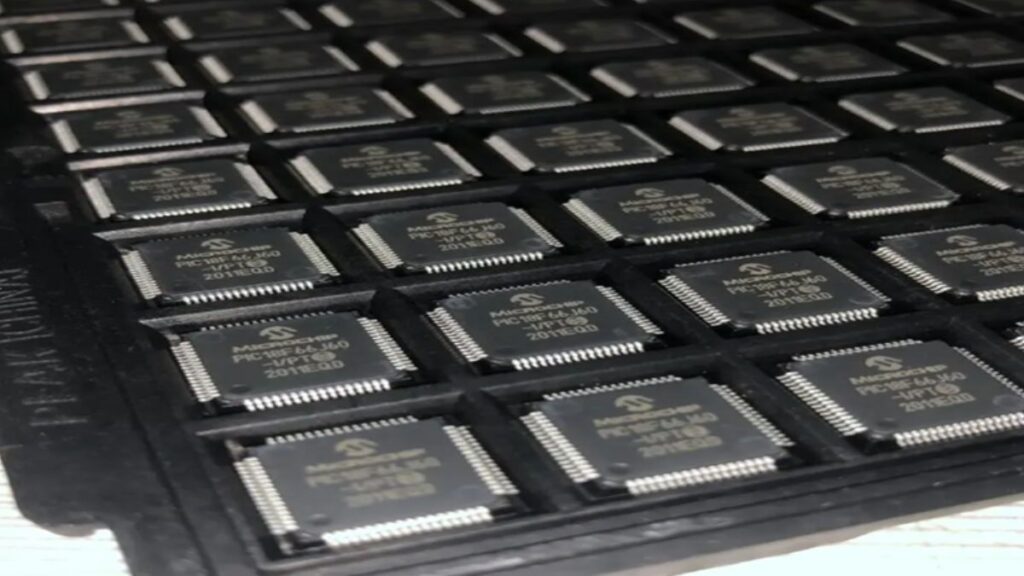Chips are a collective term for semiconductor component products, serving as the carriers of integrated circuits, and are often a part of computers or other electronic devices. In simple terms, a chip integrates and packages various electronic components, such as resistors and capacitors, along with the circuits they form, into a tiny particle. Chips are extremely precise instruments measured in nanometers; for instance, a typical Intel Core CPU has a core size similar to that of a fingernail but integrates billions, even tens of billions, of transistors. There are many types of chips, and a series of interconnected chips can be combined into a chip set, which relies on each other and, when combined, can perform even more functions. For example, the signal transmission and reception modules in smartphones are larger integrated circuits formed by multiple chips working together.
In today’s rapidly advancing society, chips have become one of the most researched and focused objects in human technology. They act like a small yet incredibly powerful “brain,” changing and enhancing our lives.
Chips are widely used in our daily lives, with different types of chips playing various roles. Like the human brain, chips receive information, issue commands, and control human actions. If we consider the CPU as the brain of the entire computer system, then the chip set composed of the CPU and other chips forms the torso of the whole body. For computers, the chip set almost determines the entire system’s functionality. Not only smartphones and computers contain chips; it can be said that wherever complex functions are involved, chips are utilized. For example, radios have audio chips, induction cookers and microwaves contain electromagnetic chips, lights have LED management chips, washing machines feature control chips, and even electric bikes have a chip called a power control chip. In various aspects of our daily lives, chips are ever-present. Their existence makes our lives more convenient and enjoyable, significantly enhancing the intelligence of our daily experiences and promoting the development of modern technology and industries. Additionally, in the information age, the efficiency of chips drives continuous technological advancement. Therefore, chip technology will play a vital role in our future lives.
Firstly, as technology progresses, the integration and computing power of chips will become increasingly powerful, making smartphones, tablets, cars, and IoT devices more intelligent. This will lead to more convenient and efficient interaction experiences. For example, smart home systems can automatically adjust the environment according to your habits, and autonomous driving technology will make travel safer and easier.
Secondly, chip technology will promote industrial production toward intelligent and automated development, optimizing production efficiency and reducing costs. This will enhance global economic competitiveness and create more job opportunities.
Furthermore, the proliferation and development of 5G networks and artificial intelligence will complement chip technology, jointly driving progress in the tech industry. This will bring more innovative applications and services to our lives, such as telemedicine and online education, making our lives richer and more colorful.
Chip technology is an important force driving modern society and technological development; it will profoundly change our lifestyles and create a brighter future for us.
The speed of chip development is truly astonishing. According to relevant data, the performance of chips has undergone tremendous changes over the past few decades. This means that the smartphones in our hands are becoming increasingly intelligent, computer processing speeds are accelerating, and smart home devices are becoming more considerate.
Take our indispensable smartphones as an example. Once, phones were merely tools for making calls and sending texts. Today, thanks to powerful chips, they have become our personal photographers, secretaries, and entertainment centers. Imagine if chip development were to stagnate—would we still enjoy such a convenient life?
Chips also have remarkable applications in the medical field. Experts point out that high-precision chips can enable medical devices to detect diseases more accurately, providing more reliable evidence for doctors’ diagnoses. For instance, small chips can be implanted in the human body to monitor health conditions in real-time and provide early warnings of disease onset.
In the future, chip development holds infinite possibilities. Perhaps one day, chips will be smaller than a grain of sand yet possess unimaginable computing power. Our modes of transportation will achieve complete autonomy thanks to chips, making traffic congestion a thing of the past.
The development of chips resembles a never-ending race; each breakthrough brings new transformations. However, this journey is not without challenges, such as technical bottlenecks and funding investments.
Nevertheless, it is precisely these challenges that fill us with anticipation for the future of chips. Each time we overcome difficulties, it means we are one step closer to a future full of infinite possibilities.







